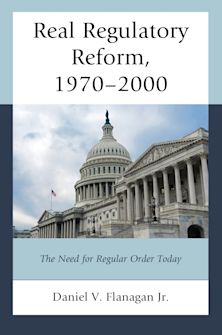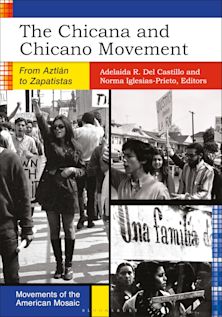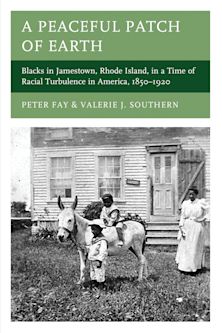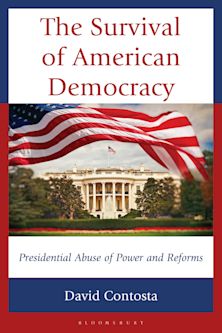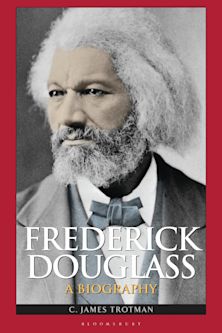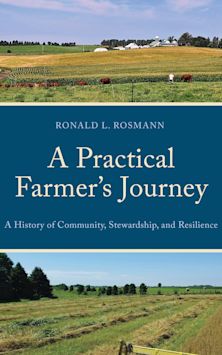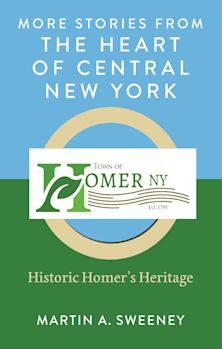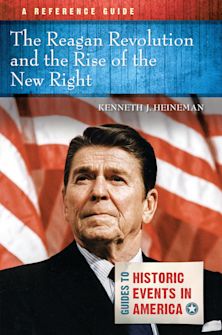- Home
- ACADEMIC
- History
- United States History
- Enjoy the Same Liberty
- Delivery and returns info
-
Free CA delivery on orders $40 or over
You must sign in to add this item to your wishlist. Please sign in or create an account
Description
In this cohesive narrative, Edward Countryman explores the American Revolution in the context of the African American experience, asking a question that blacks have raised since the Revolution: What does the revolutionary promise of freedom and democracy mean for African Americans? Countryman, a Bancroft Prize-winning historian, draws on extensive research and primary sources to help him answer this question. He emphasizes the agency of blacks and explores the immense task facing slaves who wanted freedom, as well as looking at the revolutionary nature of abolitionist sentiment. Countryman focuses on how slaves remembered the Revolution and used its rhetoric to help further their cause of freedom.
Many contend that it is the American Revolution that defines us as Americans. Edward Countryman gives the reader the chance to explore this notion as it is reflected in the African American experience.
Table of Contents
Prologue: “Proud of My Country”
Chapter One: “Fire, Fire, Scorch, Scorch”: Enslaved Africans in the Colonial World
Chapter Two: “The Same Principle Lives in Us”: Black Colonial People and the Revolutionary Crisis
Chapter Three: “The Fruition of Those Blessings”: Black People in the Emerging Republic
Chapter Four: “Now Our Mother Country”: Black Americans and the Unfinished Revolution
Epilogue: “You May Rejoice, I Must Mourn”: Slaves, Free Americans, and the Fourth of July
Documents
Bibliographical Essay
Index
About the Author
Product details
| Published | Jan 23 2014 |
|---|---|
| Format | Paperback |
| Edition | 1st |
| Extent | 208 |
| ISBN | 9781442232815 |
| Imprint | Rowman & Littlefield |
| Dimensions | 225 x 144 mm |
| Series | The African American Experience Series |
| Publisher | Bloomsbury Publishing |
About the contributors
Reviews
-
Historian Countryman challenges the historical memory of the founding of our nation, one that presents a heroic portrait of white males and gives scant attention to blacks, most of whom were enslaved. He examines the contradictions inherent in the American Revolution and the ideals of the U.S. Constitution and its protection of slavery, putting the debate in the broader context of eighteenth- and nineteenth century revolutions throughout the Atlantic region, from Europe to South America, even as slavery blossomed in the same regions. Most compelling is his examination of the choices exercised by blacks in revolutionary America to fight for the insurgents or for the British, to remain on American soil or to take a chance on former slave colonies in Sierra Leone and Liberia. Blacks famous and obscure, from Paul Cuffee to James Forten to Bishop Richard Allen and others, capitalized on opportunities presented by the Revolutionary War to press their own cause of freedom. Without the effort of revolutionary-era blacks, slavery might have continued unchallenged for a longer period of time in the U.S.
Booklist
-
Bancroft Prize-winning Countryman (A People in Revolution) begins with the bleak premise that everywhere explorers and colonizers went, with them they brought slavery--"the great unifying colonial institution." The result of Countryman's research efforts is impressive; the book includes paintings and a map of New York from 1813, and the final third contains a fascinating trove of documents, ranging from the "Virginia Law of Slavery" of 1905, to Phillis Wheatley's poetry and letters, to an excerpt from a 2008 speech by then-Senator Barack Obama. Some of these sources, such as the daily diaries of plantation owner William Byrd II, tell of unimaginable abuse in a matter-of-fact manner. Countryman makes a genuine effort to paint a picture of how excruciating the process of emancipation was in the years following 1776...the volume is...a profile of black leaders who emerged at the time, from mathematician Benjamin Banneker to Richard Allen, the founder of the Mother Bethel church. Thoroughly researched and thoughtful.
Publishers Weekly
-
Enjoy the Same Liberty is a useful introduction to the field of early African American history that complements the recent work of scholars such as Douglas R. Egerton and Alan Gilbert. It is written in an accessible style and is particularly suited for classroom use. Along with a bibliographical essay, the book contains a number of documents that shed light on the law of slavery in colonial and Revolutionary America, on racial ideologies, and on early black protest. Taken as a whole, the work is an excellent reflection on the emerging problem of slavery in the eighteenth century and the central role that the American Revolution played in black thought throughout the early Republic.
North Carolina Historical Review
-
In this slim and readable volume, distinguished historian of the American Revolution Edward Countryman elegantly outlines the interrelated fates of slavery and the enslaved before, during, and after that conflict. Countryman’s interpretation unfolds in three main themes: slavery as a ubiquitous colonial institution, the American Revolution as the beginning of the end of slavery, and, nonetheless, the United States as being wedded to slavery as a social and economic institution. In addition to an introduction that places slavery in the context of contemporary racial politics, and an epilogue that traces African Americans’ conflicted memories of July 4 over the two centuries since independence, the volume includes a jargon-free bibliographic essay and a lengthy appendix of well-chosen and contextualized primary documents for further reading.
Journal of American Ethnic History
-
Countryman's discussion of black military service on both sides of the revolutionary conflict is especially good—a model of clarity, brevity, and balance. What is best about the book is the way Countryman amplifies distinctive black voices—Philis Wheatley, Elizabeth Freeman, and Benjamin Banneker during the Revolution and Richard Allen, Absalom Jones, David Walker, and Frederick Douglass after the Revolution as well as many lesser-known figures—and the way he weaves their stories and words into a broader narrative of slavery and freedom in the early republic. ... Instructors will find the carefully chosen, well-edited collection of primary documents at the end of the book.
Journal of Southern History
-
This is the book that truly brings together and elaborates the recent explosion of research on African Americans in the Revolutionary era and the early republic. Written by one of the foremost, and most eloquent, authorities on the Revolution, it is the first to really plumb both the importance of African Americans for the Revolution and the importance of the Revolution for African Americans. Not to be missed!
David Waldstreicher, Temple University; author of Slavery's Constitution












